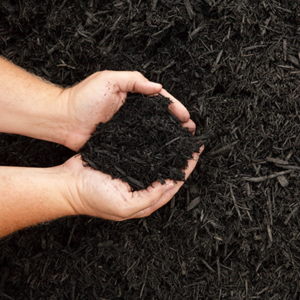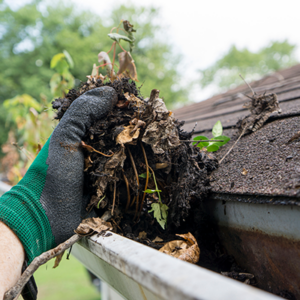October might be the nicest month of fall. The autumn colors are in full bloom, creating a magical atmosphere as they gently fall on the breeze. Unfortunately, all those leaves can create headaches for you down the road if they aren’t cleaned up. By following a thorough lawn maintenance routine this fall, you can give your yard a leg up and help your plants and turfgrass thrive when the growing season begins anew in spring.
How To Go About Your Yard Clean-Up This Fall
Make Sure To Mulch

All those fallen leaves can be turned into free mulch! Leaves are valuable sources of minerals, like nitrogen and carbon, which plants need to thrive. To mulch those leaves, you can suck them up in the lawnmower bag, or you can buy a mulcher. This tool fits over a trash bin and will shred your leaves into finer pieces to use in your garden. Some people prefer other materials like compost or straw, and that’s perfectly suitable to use as mulch. Whichever material you choose, mulching is an excellent step to add to your lawn care routine in the fall. It helps trap and retain moisture, something your ornamental plants will need over the cold, dry winter.
When applying mulch to your garden beds or trees, be sure not to pile up the mulch too thickly. Doing so can have the opposite effect – trapping too much moisture, leading to pest infestations and diseases like mold and mildew. Ideally, you should apply between one and two inches of mulch around your plants. If using mulch around your tree or shrub, leave a ring about 6 inches in diameter around the base.
Don’t Leave Debris
“Debris” means anything that has fallen on your lawn and shouldn’t be there. Think twigs, branches, leaves, etc. Rake or use a leaf blower to remove the smaller things like leaves and inspect your yard to look for larger branches. It might be tempting to leave the leaves, but doing so can cause significant problems. Remember when we mentioned that too much mulch could cause problems? Leaving debris on your lawn will have the same effect. Insects like fleas, ticks, and mosquitoes love dark, dank areas where they can hide from predators and have access to water. This is especially true for mosquitoes, who need to lay their eggs in standing water. Not to mention, there’s a whole slew of molds, mildews, and fungi that love that same environment. As tempting as it is to skip raking leaves and organic debris, you could create a whole new set of problems for yourself down the road.
Beat Weeds To The Punch
By applying a pre-emergent weed control product now, in fall, you should expect to see fewer broadleaf weeds next spring. That’s because these types of products are designed to target weeds before they germinate. And since most weeds are going dormant right now, they will be pulling nutrients into their root systems. Consequently, apply pre-emergent weed control now will maximize its effectiveness. Just make sure the product is labeled “selective” so that it will only target the weeds and leave your flowers, shrubs, and turfgrass unharmed.
Get Rid Of Gutter Junk

All that black sludge in your gutters is the same stuff in your compost bin! When leaves and twigs are left to decompose in your drains, they’ll turn into thick black compost that makes it difficult or impossible for water to flow freely. Clogged gutters will become a breeding ground for bugs like mosquitoes, and if they aren’t addressed swiftly, they could lead to problems with your home’s structural integrity. Overflowing water from gutters can lead to leaking roofs, rotted beams and fascia boards, cracks in the foundation, flooded basements, and even foundation erosion! Cleaning your gutters is something you can’t procrastinate with, and skipping a few hours of work could cost you thousands of dollars down the road.
Give Your Lawn Some Breathing Room
Fall is the time when soil is most likely to be compacted and thick with thatch. Thatch is all that dead grass that looks like straw – you might have noticed this when raking the lawn. And compacted soil means the earth is hard as concrete, not loose and porous. If either or both of these conditions are present in your yard, they will smother your grass if they haven’t done so already. By aerating in fall, you’ll solve this problem before winter, when the cold and snow can make your soil even more compacted. Aerating treatment breaks up thatch and compacted soil by punching thousands of tiny holes in your lawn. This will allow oxygen, water, sunlight, and nutrients to reach your turfgrass’ root zone once again. If needed, you can overseed anything or bare areas where turfgrass may have been lost due to compacted soil. As a full-service lawn care company, Quality Cut can help you choose the best grass seed blend for your yard – ask a team member!
Find Lawn Care Services Near Wilmington, DE
If just the thought of doing all that fall yard prep tires you out, we can’t blame you. Why not let the professionals at Quality Cut Lawn Service do the heavy-lifting? We’ve helped thousands of homeowners in north Delaware attain healthy and picturesque yards in the 23 years we’ve been around. Let us add your name to our list of satisfied customers! We offer both fall and spring clean-ups to get your yard ready for the needs of the upcoming season. Are you interested in adding mulch to your yard? Our mulching service will help you choose the right material for your situation. If you’d like to learn more about this valuable service, give us a call at 302-420-7597 or leave us a message online here. You can also connect with us by reading our blog page, where we post articles every month on topics ranging from landscaping ideas to lawn fertilization.
